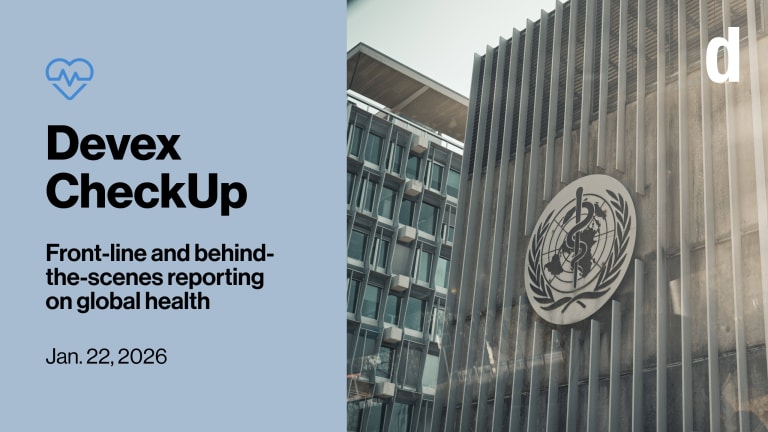The Ebola outbreak has revealed serious resource mobilization problems at the world’s “go-to” response agency, according to some global health experts.
Tackling the disease in West Africa — where ill-equipped national health systems and lack of infrastructure have spurred the rampant spread of the deadly virus — has been a tall challenge for the World Health Organization, and made all the more difficult by the U.N. agency’s funding structure.
“They basically have a begging bowl,” Lawrence Gostin, WHO Collaborating Center on Public Health Law and Human Rights director, said Sept. 3 during a panel discussion hosted by the Center for Strategic and International Studies in Washington, D.C.
Printing articles to share with others is a breach of our terms and conditions and copyright policy. Please use the sharing options on the left side of the article. Devex Pro members may share up to 10 articles per month using the Pro share tool ( ).
Search for articles
Most Read
- 1
- 2
- 3
- 4
- 5








